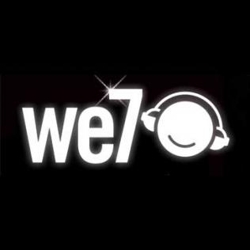One pint of milk, one loaf of bread, and a music streaming service. That will be £10.8 million.
Yesterday’s news that We7, which aimed to be the Pandora of Europe, has sold to the supermarket giant Tesco probably raised a few eyebrows. What’s a grocery store to do with a music streaming service? Selling to Tesco is unlikely to have been in We7’s original deck under the section titled “exit strategy.”
The official line is that the purchase of We7 will “complement Tesco’s current music offer in store and online” as its customers abandon CDs in favour of accessing music “instantly on any device, whenever and wherever they want.” It’s reminiscent of Amazon’s digital strategy, of which Tesco is now surely a competitor, and ties in nicely with the retailer’s purchase last year of another UK startup, Blinkbox, which lets users stream Hollywood movies on-demand on the same day as their DVD release. Like We7, the service also aims to be device agnostic and is available on PC, games consoles, tablets and Internet-connected TVs.
Tesco, of course, has been diversifying beyond groceries since as far back as 1997 as it’s aggressively entered markets such as financial services, non-food items and telecoms. The latter via the retailer’s MNVO Tesco Mobile fits in nicely with offering music and video streaming services to smartphones and tablets.
For We7, whose original backers include Peter Gabriel and CEO Steve Purdham in early 2007, followed by a number of rounds from the likes of Eden Ventures, Spark Ventures, Pentech Ventures, and Qualcomm Ventures, the exit is a modest one after years of tenacity.
The company is thought to have raised a Series A of $6M and a subsequent undisclosed round, while sustaining almost as many pivots as Loic Le Meur’s Seesmic (OK, I’m being unkind). We7 began life as an innovative free and ad-supported music download service before transitioning to an on-demand browser-based offering. This was followed by a premium paid-for play with desktop and mobile versions sans-advertising before repositioning itself once again as a personalised Internet radio service more along the lines of Pandora in the U.S.
In a canned statement Purdham talks about Tesco being the “perfect partner to bring We7’s music services to a wider audience”, and certainly the company has reach. Not only is Tesco the UK’s largest retailer, it has around 5,000 stores worldwide, and operates in 14 countries, with a decent online presence too.
In other news, Tesco isn’t the only UK supermarket to be jumping on the digital goods bandwagon. Competitor Sainsbury’s recently gobbled up the ebook retailer Anobii from HMV (for just £1), also pitting itself against Amazon.
So startups take note: on that slide named ‘exit strategy’, it might be worth adding a supermarket giant or two alongside the usual suspects. I’m sure VCs will love you for it.
